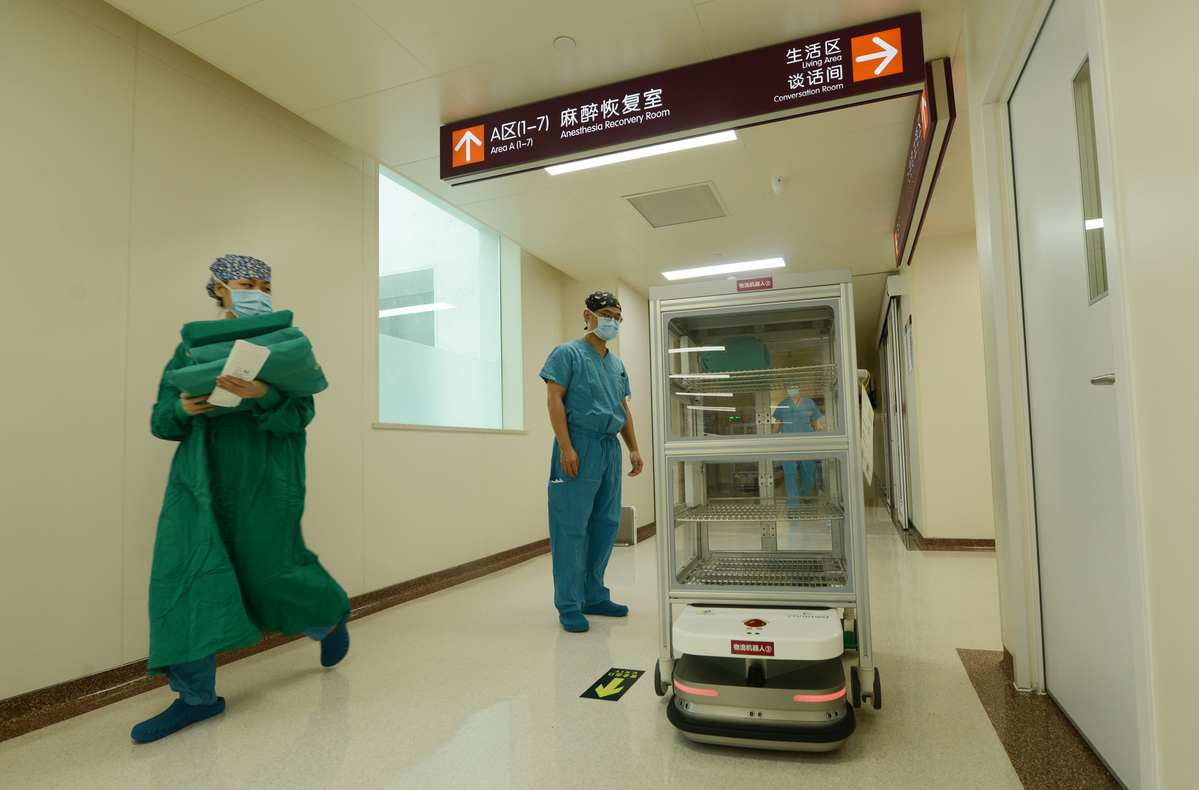Application of smart tech gains more ground


China is gaining the lead in the global artificial intelligence industry with over 60 percent of big data experts worldwide currently working in the country, but there is a shortage of cross-sector talent in the AI-enabled healthcare industry, a report said.
The report, released by Hays Plc, a global professional recruiting group, stated that the rapid development of emerging industries has led to a gap between the supply and demand of talent. In fields enabled by AI technologies-especially the AI plus healthcare sector-the competition for talent has grown fierce.
The deep integration of AI and healthcare has been applied in various segments, including public health, hospital management, medical imaging, medical robots, drug discovery, health management, precision medicine and medical payments. More application scenarios continue to emerge.
"Internet companies' entry into the medical and healthcare market is nothing new. Generally, these companies aim to disrupt industries through applying the internet innovation mindset," said Jessica Wang, managing director of Hays China.
Wang said for the companies hunting for talent, instead of extensive experience in the healthcare industry, their technological capabilities, flexibility of thinking and overall potential to fit in with the culture of the company are more eye-catching.
She said some subsectors, such as genetic sequencing, medical imaging, new drug development, early cancer research, assisted diagnosis and next-generation sequencing technology, are developing rapidly, leading to a corresponding demand for talent.
Among them, the vast market capacity of medical imaging is attracting many investors and entrepreneurs, and the development of the business is directly linked to the field, Wang added.
AI will not replace doctors but assist them, liberating them from complex and repetitive tasks. Moreover, machines are more accurate than humans in some ways and can minimize human uncertainty and error in diagnosis, said Qiao Xin, co-founder and CEO of Deepwise, a medical AI pioneer.
Deepwise has been focusing on the development of a clinical imaging diagnosis system for early cancer detection, breast and lung scans and stroke diagnosis, which are designed to improve hospital work efficiency and accuracy, and alleviate the work burden of work-laden medical professionals, Qiao said.
In addition, iFlytek Co Ltd, a leading Chinese AI company, has leveraged its expertise in speech technology to assist doctors in improving accuracy levels of diagnosis by launching intelligent robots in partnership with several Chinese hospitals and medical institutions.
The robot can automatically capture and analyze patient information and make an initial diagnosis. It has been used to assist doctors to improve efficiency in treatments, iFlytek said.
AI and other new-generation information technologies have empowered the medical, healthcare and public health sectors, while promoting research and development in basic medicine, clinical application and medical devices globally, said Zhong Nanshan, an academician at the Chinese Academy of Engineering and a leading expert in China's respiratory disease research.
Zhong said the use of AI has also enhanced the recognition and understanding of diseases by researchers.
Hays believes internet companies' continuing investment in the healthcare sector is quite promising, and demand for talents remains high. It is optimistic about the future of the medical robotics field, including surgical robots, rehabilitation robots, service robots and auxiliary robots.
Large hospitals and traditional pharmaceutical companies are utilizing internet and digitalization to help businesses develop. With a clear focus on technological transformation, there is strong demand for talent in the field of AI, especially in image algorithms and deep learning, the company said.
The report added the AI-enabled healthcare sector still faces challenges such as insufficient talent reserves, unbalanced talent supply and demand, and a shortage of talent in emerging cross-sectors.
Leading domestic companies, industry giants, emerging startups and foreign enterprises have increased their efforts, proposing substantial packages to compete for outstanding talent in the field, with a focus on young overseas returnees.
Most candidates tend to choose traditional industries that develop steadily, while emerging cross-border fields, such as AI-enabled healthcare, are still the top choice of only a few job seekers for now, Wang added.




































